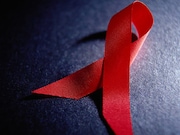Recommendations support PrEP for those at high HIV risk, screening for teens, adults, in pregnancy
TUESDAY, June 11, 2019 (HealthDay News) — The U.S. Preventive Services Task Force recommends preexposure prophylaxis (PrEP) and HIV screening for prevention of HIV infection. These recommendations form the basis of two final recommendation statements published online June 11 in the Journal of the American Medical Association.
Researchers from the USPSTF reviewed evidence on the benefits of PrEP for prevention of HIV infection with oral tenofovir disoproxil fumarate monotherapy or combined tenofovir disoproxil fumarate and emtricitabine. The researchers identified convincing evidence that PrEP is of substantial benefit for reducing HIV infection risk in those at high risk for HIV acquisition. In addition, there was evidence that PrEP adherence is central to realizing its benefit. Small harms of PrEP were identified, including kidney and gastrointestinal adverse effects. Based on these findings, the USPSTF recommends PrEP with antiviral therapy for those at high risk of HIV acquisition (A recommendation).
In a second recommendation statement, researchers updated the 2013 recommendation on HIV screening in adolescents, adults, and pregnant women. There is convincing evidence that HIV tests are highly accurate for diagnosing HIV infection and that identification and early treatment are beneficial. Identification and treatment of HIV in pregnant women are beneficial for reducing the rate of mother-to-child transmission. Based on these findings, the USPSTF states that there is a net benefit to screening for HIV infection in adolescents and adults, in those at increased infection risk, and in pregnant women (A recommendation).
“Screening for HIV is important so that everyone knows their HIV status, and those with HIV can begin treatment right away,” USPSTF member John Epling, M.D., said in a statement. “Today’s treatments help people live long, healthy lives and lower the risk of passing HIV to others.”
Copyright © 2019 HealthDay. All rights reserved.








